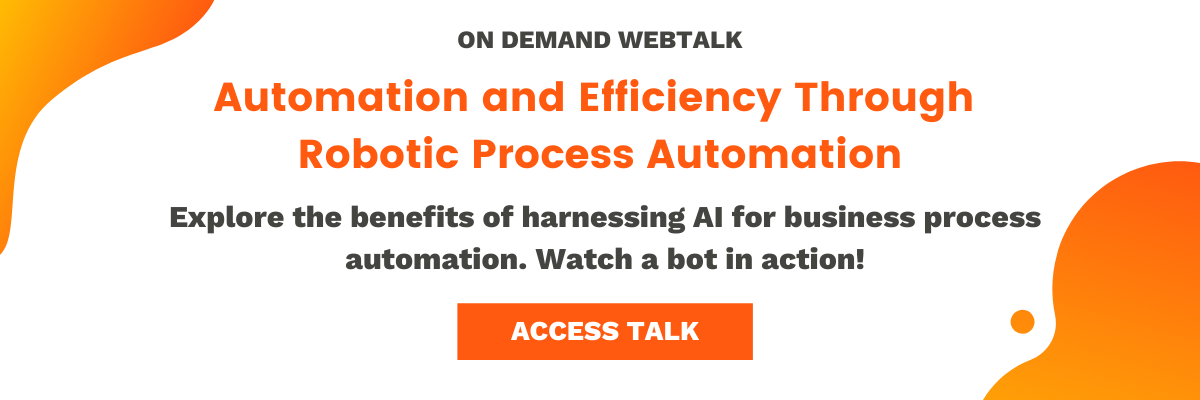Business Applications of Artificial Intelligence
The ultimate goal of continuing to develop artificial intelligence can fall under a couple of different finish lines. On one hand you have the touted science fiction ideal, wherein humanity will successfully create fully independent, free-thinking machines containing their own individual humanity and free will. On the other, we should develop artificial intelligence until it’s become advanced enough to adequately ease the load of work and survival for the rest of the human race.
We’re pretty far from both goals, but the latter is much more in reach than the former.
Within the last decade, advancements in artificial intelligence technology have secured genuine applications in the business world. We’ve reached a point where implementation into people’s lives, both business and casual, has become rote and commonplace. There’s value in its business applications, and as AI presence continues to develop and grow, we can expect to see more of it in the coming years.
More and more businesses are hopping on the AI bandwagon, exploiting it in any range of uses from facial recognition to Big Data analysis. Data is, after all, its bread and butter. Every field, including medical, financial, gaming, and more, has some sort of use for what AI offers. At this point, any company that doesn’t take advantage of the AI trend will soon find itself falling behind in performance and delivery.
As the artificial intelligence field continues to grow, so do the possibilities, designs, and purposes of individual AI program structures. Among the different types of artificial intelligences extant, one in particular we want to highlight is called “weak AI.”
What Is Weak AI?
Weak AI, otherwise known as narrow AI, is an artificial intelligence program designed to only complete one task. In contrast, strong AI is built to address many possible problems, but also tend to be more complex. Weak AI, however, provide solutions to issues that might otherwise be neglected, and can be subject to better design. Siri, for example, is an excellent representation of weak AI, as it’s only built with a limited framework for addressing specific problems.
Between weak AI and strong AI, modern business artificial intelligence programs are more likely to fall into the weak category. There simply isn’t enough of a call for strong AI to be widely utilized among organizations when it’s best intended to address specific issues.
Demystifying AI for Business Tech Leaders
Even as AI continues to be a major driver behind business transformation in every sector, many organizations are holding reservations about it. The term AI conjures up complex images, and with some amount of prejudice birthed from science fiction media, there’s those in the business field who feel like they couldn’t possibly make use of its faculties.
According to a study by Spiceworks, IT leaders are not confident that they have enough resources nor the skill set in place to leverage AI technologies in their organizations. Only 50% of businesses have actually taken the proactive steps necessary to implement AI, leaving the other half of the business world still sitting in the 20th century by comparison.
AI technology has been around for quite some time, but the present-day level of sophistication and prevalence that we’re beginning to see is only a recent development. As with anything new, the use cases that demand the abilities of an AI program are still being compiled, and that lack of dependable results has given these companies misgivings.
Whether they like it or not, AI isn’t going away. It’s only becoming more and more critical now due to the growing amount of data for analysis that organizations that haven’t implemented AI into their frameworks do so, or else they’ll find productivity will dip in comparison to competitors who’ve already incorporated these technologies.
Ways AI Applications Are Supporting Business Today
Though there’s some hesitation regarding use cases and examples, successful planning with the intent to support AI technologies has already proven to be a widespread feature in many companies. It’s a brave new world, and like all things artificial intelligence needs dedicated structures and tools to ensure it functions properly to its fullest capacity. Let’s talk about how AI applications are already supporting businesses.
Chatbots
Chatbots have been a popular tool, both for business and fun, for years now. They’re computer programs designed to carry out conversations with a human user through answers via either text or chat messages. While it once was little more than an entertaining gimmick to showcase an emerging technology, the use of big data has allowed us to develop this technology to a point where they can process human communication as a means for assistance. They won’t pass a Turing Test, but they’re not necessarily designed to.
The principle use of a chatbot is to process human language into desirable actions. It’s a viable program that benefits customer service, assistance, and time-to-resolution as a means to address human concerns even when someone isn’t available. However, while classic chatbots were restricted to text or chat, AI like Siri and Alexa have been developed to understand and respond to voice commands in the household.
Predictive Analysis
People are habit forming creatures, developing patterns that subtly reveal our interests, desires, and attention while we browse online. This same pattern affects things beyond our personal experiences: stock market changes, train times, store hours, etc. The world is composed of patterns, and businesses have developed AI with the ability to read them.
Predictive analysis is an AI application designed to utilize gathered data and statistics to predict future outcomes. In Netflix’s case, their AI will pick out and recommend new shows for you to watch depending on what you frequently view. Predictive search terms and responses pop up on Google that reflect your choices and experiences while online. These and many other examples of predictive analysis help companies respond to their customers better and deliver a tailored experience.
Predictive Risk Management
Predictive analysis has more uses beyond just pattern recognition. The financial sector utilizes AI as one of the most important applications it has in its arsenal. According to Ingenico, 1.5% of financial services companies’ annual revenue is lost because of fraud-related customer attrition. It may not seem like a whole lot, but that can be millions of dollars lost. Thankfully, AI predictive risk management provides the solution, supplying banks with the necessary tools to identify potential risks and frauds.
Inventory Management with Computer Vision
Computer vision is a field in artificial intelligence that takes and develops advanced image processing software and applies it to any number of possible uses. Retailers in particular are the foremost executors of this type of AI implementation to improve management of inventory. Computer vision-based robots or computers can be used to track and manage store inventory automatically. This may be finding misplaced items, missing price labels, or alerting a store employee when a shelf is empty or needs restocking.
Autonomous Vehicles
A little bit of the far off future is starting to edge its way into reality. After all, self-driving cars cannot exist without AI, and those are no longer a futuristic dream. While nothing is quite road ready yet, the chances that we’ll see autonomous vehicles on the road within our lifetimes is nearly guaranteed. But what’s so important about that? It’s cool, sure, but what about self-driving cars is life-changing for society in general?
According to the National Highway Traffic Safety Administration (NHTSA), 90% of fatal road accidents in the U.S.A. are due to human error. That seems obvious, considering that all cars are operated by people, but it’s important to note the human element of that statistic. There are so many things that even the most diligent of drivers may have trouble keeping up with or seeing, like blind spots, pedestrians, other cars, and so on.
The goal of self-driving vehicles is to remove the human element of it. By having the capacity to reduce human error, autonomous driving will, in turn, save human lives.
Facebook Advertising
AI is highly capable in reading Facebook users to find what appeals to their interests. By utilizing deep learning, Facebook filters adverts in order to show them to the appropriate users. It’s the ideal situation to use AI like this, as Facebook itself is dedicated to being social media, containing your interests and what pertains to you personally. They teach machines to find out as much as they can about their users, and then build user clusters for ads.
Customer Support
As valuable as having a human touch can be, you can only have so many people on call to handle the swarms of customers coming for help. Getting swamped means customers being put on hold, employees being overworked to meet the demand, and in general a tense atmosphere can develop for all involved. However, AI can not only help maintain a competitive edge, it can be used to come to the customer’s aid as well.
Businesses need to to delight customers by solving problems as quickly and seamlessly as possible. That isn’t easy to do unless you have an artificial intelligence on the case. AI can aid customer support teams by making them much more effective and compiling large amounts of information to interpret and apply in real human relationships.
Cybersecurity Defense
The digital age brings with it its own unique risks that haven’t existed before in most of human history. Data is vulnerable, and needs to be protected. Modern problems require modern solutions, and AI technology is ideal to address them.
Artificial intelligence can help prevent, detect, and fix potential online threats, like data breaches. This can be especially useful for cloud computing management, where the current approach is to react to breaches, rather than proactively prevent them. AI can identify what is safe and what is a threat, stopping them before they are applied to any systems.
Recruiting Automation
Hiring new employees isn’t easy when your box is full of resumes to pore through. It’s dull, tedious work to adequately root through all the potential candidates, weed out the ones who don’t fit your requirements, and then initiate the interview process. AI has the potential to save recruiters time through automation. By automating high-volume tasks, like resume screening, the amount of time recruiters will spend on menial tasks greatly decreases, hastening the hiring process in all aspects.
Stock Market Prediction
Like in previous examples regarding the capabilities of AI prediction software, artificial intelligence can be equally applied to the stock market. Machine learning has the potential to find patterns and insights in order to make accurate predictions about a company, using data like revenue results, important announcements, and so on.
Our Own AI Application
iTexico is proud of our own original AI technology, which we’ve lovingly named HAL. Our work on artificial intelligence started as a foray into the efficient communication and control systems issues that mid-growth organizations have as their workforce continues to growth has. We saw there was an opportunity for us to make an impact on the business productivity of any company that sought out our services, and we’ve delivered on it.
HAL was created to help ensure proper attendance. By identifying the faces of our employees, we’re then able to correctly identify the employee through Microsoft Cognitive Services and obtain any pertinent information, such as their name and when they arrived at iTexico. Once identified, HAL can then use this information to remind our workers of important meetings, information, and provide a helpful hand for any other activities. Plus, it works as a chatbot.
As a result, we’ve increased productivity with a 93% monthly reduction of attrition. With just a little help throughout the day, AI technology can have an enormous impact on any company that utilizes its services, and HAL is one of many AI programs on the market capable of making a difference.
But we’re pretty fond of ours.
Conclusion
While not every company has been smitten with the benefits that AI technology can bring to the business sector, it’s evident that it’s a field that will only continue to evolve and establish itself as a crucial asset. There are no sectors that can claim they wouldn’t benefit from AI implementation. Considering the massive amount of applications AI can be used for, from prediction to security to advertising, it can be considered in many ways as Swiss army knife of sorts.
iTexico provides valuable services to assist you in leveraging AI to the utmost of its capabilities. To learn more, visit our AI Innovation Center to see how you can implement AI technology in your company.







Post Your Comment Here